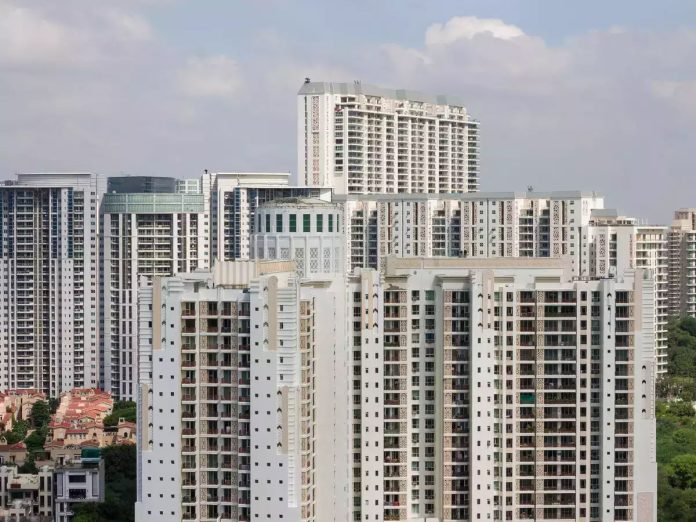THE recent announcement made by the Chairman of the Revenue Mobilisation Allocation and Fiscal Commission (RMAFC), M. B. Shehu, indicated that each of the 109 senators in the Red Chamber receives a monthly salary and allowance totaling ₦1,063,860.
The purpose of this disclosure was to address the persistent controversies and lack of transparency surrounding the salaries and remuneration of National Assembly members. The issue was reignited following former President Obasanjo’s statement questioning the legislators’ autonomy in determining their own pay. Moreover, a lawmaker from Kaduna State, Senator Shehu Sani, had previously disclosed that when he was in the Senate, each senator received a monthly running cost of ₦13.

5 million in addition to the prescribed ₦750,000 monthly allowance set by the RMAFC. Sani emphasised that the RMAFC lacks the constitutional authority to ensure compliance with the proper implementation of lawmakers’ remuneration packages, further complicating the debate surrounding legislators’ pay. Sani provided a detailed breakdown of the salary and allowances allocated to each senator, including the following components: Basic Salary – ₦168,866.
70; Motor Vehicle Fuelling and Maintenance Allowance – ₦126,650.00; Personal Assistant – ₦42,216.66; Domestic Staff – ₦126,650.
00; Entertainment – ₦50,660.00; Utilities – ₦50,660.00; Newspapers/Periodicals – ₦25,330.
00; Wardrobe – ₦42,216.66; House Maintenance – ₦8,443.33; and Constituency Allowance – ₦422,166.
66, respectively. However, Abdurrahman Kawu Sumaila, a member of the 10th Senate representing Kano South under the New Nigeria Peoples Party (NNPP), revealed that he currently earns approximately N21 million monthly in salary and allowances. In an interview with the BBC Hausa Service, he refuted former President Olusegun Obasanjo’s claims of inflated salaries for National Assembly members.
Sumaila clarified that the official pay structure is set by RMAFC. He stated that his actual monthly salary is less than N1 million, reducing to just over N600,000 after deductions, and explained that the N21 million is allocated to each senator as a running cost following recent Senate adjustments. The issue of legislators’ compensation has garnered considerable attention and debate, raising questions about fairness, accountability and transparency in governmental operations.
Speculation regarding lawmakers’ pay has fueled claims that Nigerian legislators receive the highest salaries in the world. The generous salaries and allowances provided to these lawmakers are often viewed as excessively lavish and have been criticised as indicative of the broader governance issues in the country. Additionally, the lack of transparency regarding legislators’ compensation and benefits has intensified public scepticism and eroded trust in the legislative branch.
The absence of clear information on the allocation of public funds to lawmakers has raised doubts about accountability and financial prudence. Citizens are increasingly questioning the rationale behind these substantial expenses, especially when juxtaposed with the country’s prevalent social and economic difficulties. The substantial compensation of Nigerian legislators has intensified concerns about skewed governmental priorities, with elected officials seemingly prioritizing self-enrichment over public service.
These lavish benefits have sparked outrage among citizens grappling with poverty, inadequate infrastructure, and economic struggles exacerbated by austerity measures. Public discontent was expressed through demonstrations under the hashtag #EndBadGovernance, highlighting perceived inequities in resource allocation and official conduct. The economic divide between lawmakers and the average Nigerian emphasizes the stark inequality in the country.
While legislators enjoy luxurious lifestyles and benefits, many citizens lack access to basic necessities such as healthcare, education and clean water, underscoring systemic injustices in wealth distribution and perpetuating poverty and marginalisation for many. It is deeply troubling that Nigerians lack clarity on the exact earnings of their federal lawmakers, relying on the integrity of individual senators and House of Representatives members for insights into legislators’ incomes. This lack of transparency is unacceptable, as no responsible government should operate public finances in such opacity.
In contrast, the remuneration details of members of the US Congress and Senate are readily available online, alongside public access to the salary of the President of the United States. How can lawmakers officially earn around N1 million monthly while clandestinely allocating N21 million to themselves? Nigerians should not be left to depend on the subjective honesty of any single senator to approximate legislators’ compensation. The National Assembly must not only prioritise transparency but fully embrace it to cultivate the trust of the people.
It is a disgrace that both public officials – lawmakers and the executive – treat Nigerians with disrespect. They have fostered a culture that thrives on corruption and covert dealings instead of transparency and openness in governance. Government affairs are shrouded in secrecy, as if Nigeria’s resources are a private matter.
It is evident that those in power realise that the extravagant resources they amass from the public treasury would naturally not be accepted by Nigerians, hence they conceal these dishonourable earnings. However, their shortsightedness is apparent, as the day will come when Nigerians will demand accountability to put an end to the massive corruption. The current practices are clearly unsustainable, and those luxuriating at the expense of the populace should be wary and apprehensive of the impending day of judgment, choosing to reform their ways before it is too late.
We urge the government to rationalise and oversee the salaries and allowances of lawmakers and other elected officials by instilling transparency in budgetary allocations. Ethical governance principles are crucial for rebuilding public trust and faith in the government. Tackling the disgrace of exorbitant pay for legislators and other political office-holders will propel Nigeria towards creating a more just and transparent society where the welfare of the citizens is genuinely emphasised and protected.
Read Also: I won’t leave PDP, I will stay and fight — Wike.


















